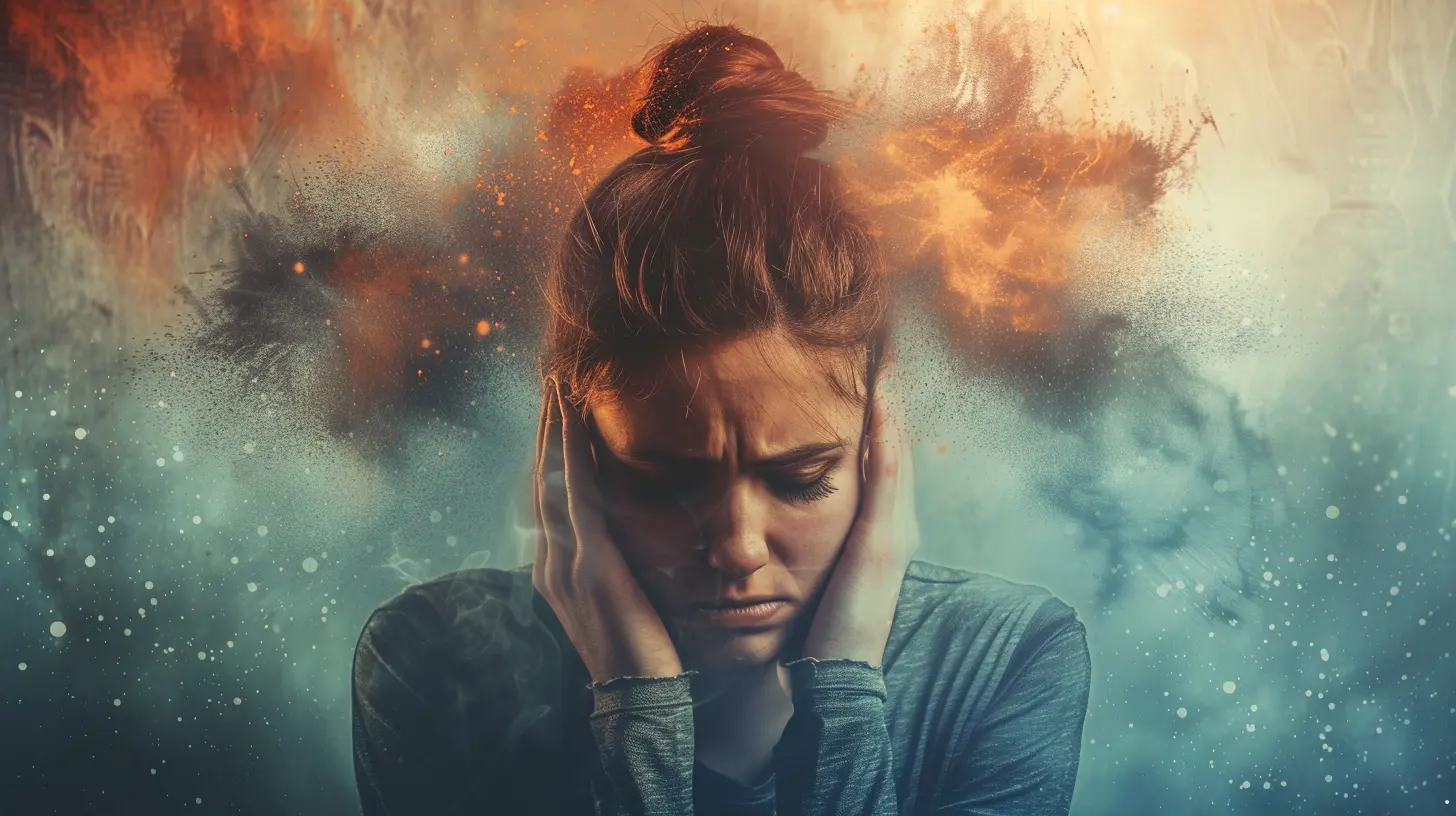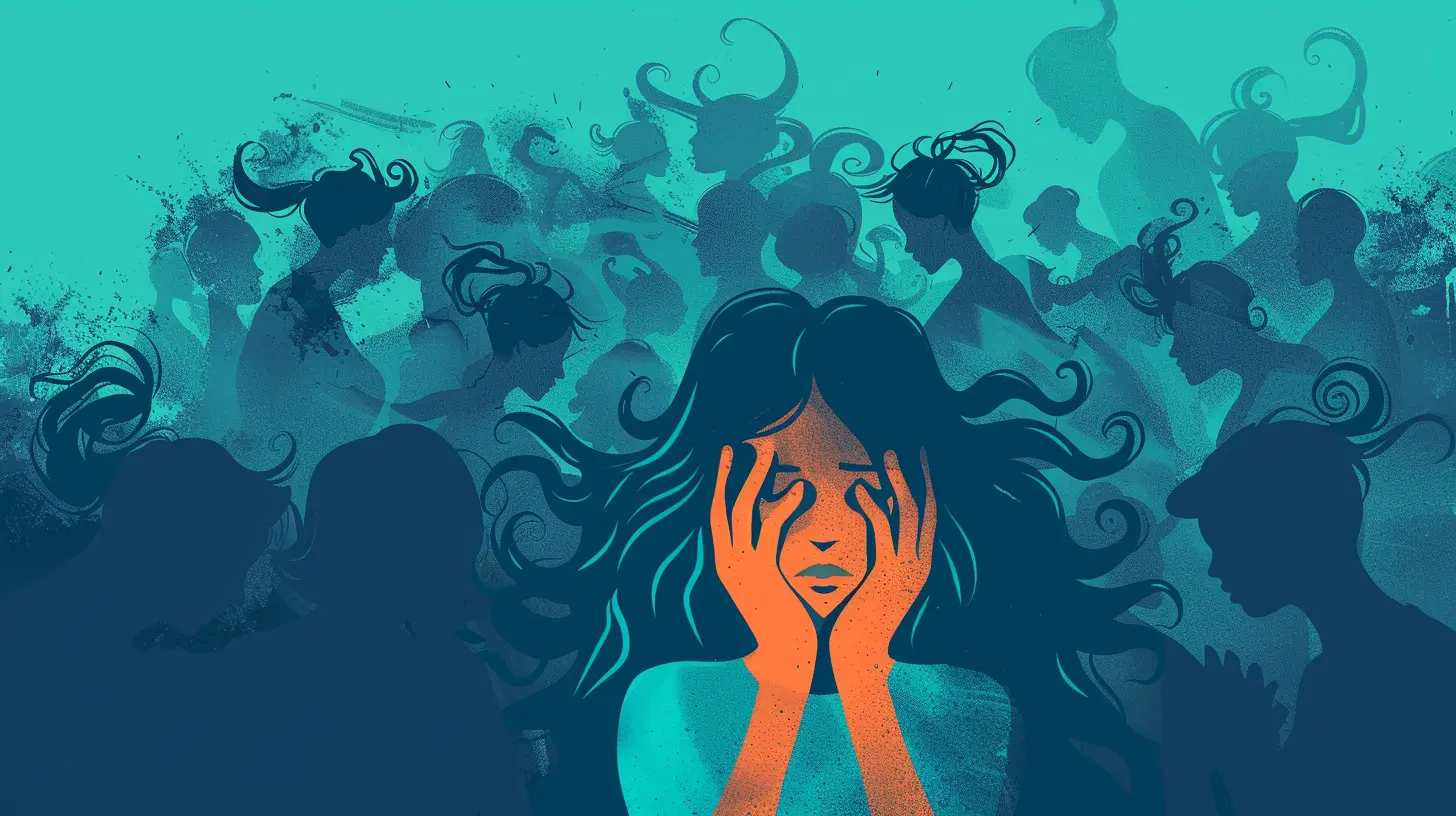The Psychology of Social Anxiety: Why Social Interactions Can Be Stressful
7 September 2025
Ever find yourself avoiding parties or dreading a simple conversation with a stranger? You’re not alone. Many people experience social anxiety, a condition that can make everyday social interactions feel like an uphill battle. But why is it that some people get so stressed out by social situations while others glide through them effortlessly?
This article dives deep into the psychology of social anxiety, exploring the reasons behind that overwhelming sense of dread and unease. We’ll break it down into bite-sized, relatable chunks—no jargon, just real talk. So, grab a cup of coffee (or your drink of choice), settle in, and let’s explore why social interactions can feel, well, so stressful.

What Is Social Anxiety?
Before we go any further, let’s make sure we’re all on the same page. Social anxiety, often referred to as social phobia, is a mental health condition characterized by an intense fear of social situations. People with social anxiety often worry about being judged, embarrassed, or scrutinized by others. They might fear that they’ll say the wrong thing, act awkwardly, or even just come off as "weird."Symptoms of Social Anxiety
Social anxiety can show up in both physical and mental ways. If you’ve ever experienced any of the following, you might know what I’m talking about:- Rapid heartbeat – like your chest is about to explode.
- Sweating – even when it's not hot out.
- Shaking or trembling – hands, voice, or even legs.
- Nausea or stomach discomfort – that gut-wrenching feeling.
- Avoidance behaviors – like ducking out of social events or making excuses to stay home.
Mentally, social anxiety can trigger a cascade of negative thoughts. You may think, "What if I say something dumb?" or "Everyone’s going to think I’m awkward." These thoughts can become so overpowering that you end up avoiding social situations altogether.

The Brain Behind Social Anxiety
So, what’s happening in the brain when social anxiety kicks in? The answer lies in a part of the brain called the amygdala. This little almond-shaped structure is responsible for processing fear and threat detection. For people with social anxiety, the amygdala can be hyperactive, creating a sort of overreaction to social cues.To put it simply: When you’re socially anxious, your brain is acting like you’re about to face a life-threatening danger, even though all you’re really doing is talking to a coworker or ordering coffee.
Fight, Flight, or Freeze
You’ve probably heard of the "fight-or-flight" response, right? Well, social anxiety often triggers that response in non-dangerous situations. Your body gears up as if you’re about to run from a predator, but instead of a lion, you’re facing a room full of people at a networking event. Some people with social anxiety even experience the "freeze" response, where they feel completely immobilized in social settings.This heightened response is essentially your brain sending a false alarm. It’s telling you that social interactions are way more threatening than they actually are.

Why Social Interactions Can Be Stressful
Okay, so we’ve established that social anxiety has a lot to do with how your brain processes fear. But why are social interactions stressful in the first place? Let’s break it down.Fear of Judgment
One of the biggest reasons people with social anxiety struggle is the fear of being judged or evaluated by others. You might worry that people are watching your every move, waiting for you to slip up. And let’s be real, social situations can sometimes feel like a high-stakes performance. Whether it’s giving a presentation, chatting in a group, or even just making small talk, the potential for judgment can feel overwhelming.Perfectionism
Many people with social anxiety are also perfectionists. They set unrealistically high standards for themselves, especially when it comes to social interactions. The problem? No one can be perfect all the time. This desire to appear flawless can cause a lot of stress because, deep down, you know that’s impossible—and that thought alone makes social situations even more terrifying.Negative Self-Talk
Ever catch yourself thinking, "I’m just not good with people" or "I always mess up"? That’s negative self-talk, and it’s a common companion to social anxiety. This constant stream of self-criticism can make social interactions feel like a minefield. The more you tell yourself you’re bad at something, the more anxious you become about it, creating a vicious cycle.Social Comparison
In today’s world of social media, it’s easy to compare yourself to others. You might look at someone else’s seemingly effortless ability to make friends or speak in public and think, "Why can’t I do that?" This comparison can be damaging, especially for someone with social anxiety. The truth is, everyone has their own challenges, but when you’re anxious, it’s easy to feel like you’re the only one struggling.Unpredictability
Social situations are inherently unpredictable. You can plan what you’re going to say, but you can’t control how the other person will respond. This unpredictability can be nerve-wracking for someone with social anxiety. The fear of the unknown can make even simple interactions feel like a risk.
How Social Anxiety Impacts Daily Life
Social anxiety doesn’t just show up during big events like job interviews or parties. It can sneak into all kinds of daily activities. Let’s look at a few examples:- Work: Maybe you avoid speaking up in meetings because you’re afraid of saying something wrong. Or perhaps you dread after-work gatherings because the idea of small talk makes your skin crawl.
- School: If you’re a student, you might avoid raising your hand in class, even if you know the answer, because you’re worried about what your classmates will think.
- Friendships: Social anxiety can make it hard to maintain friendships. You might cancel plans last minute or avoid reaching out to people because you’re afraid of being rejected.
- Romantic relationships: Dating can feel like a nightmare for someone with social anxiety. The idea of putting yourself out there and potentially facing rejection can be paralyzing.
In severe cases, social anxiety can even lead to isolation. When the fear of social interactions becomes too overwhelming, some people withdraw from social life altogether, which can lead to feelings of loneliness and depression.
The Role of Early Experiences
Where does social anxiety come from in the first place? Well, like many psychological conditions, it’s a combination of genetics and environment. Some people are more predisposed to anxiety because of their brain chemistry or family history, but early life experiences can also play a big role.Overprotective Parenting
Some research suggests that people who grow up with overprotective or controlling parents may be more likely to develop social anxiety. If you’ve been shielded from social challenges as a child, you might not develop the confidence to navigate social situations as an adult.Bullying or Rejection
Negative social experiences, like bullying or rejection, can also contribute to social anxiety. If you’ve been teased or excluded in the past, you might start to associate social situations with those painful memories, leading to increased fear and avoidance.Cultural Expectations
Cultural factors can also play a role. In some cultures, there’s a lot of pressure to "fit in" or meet certain social standards, which can increase anxiety. For example, if you’re in a culture that values extroversion and socializing, you might feel extra pressure to perform socially, even if that’s not your natural inclination.
Coping Strategies for Social Anxiety
The good news? Social anxiety is treatable. There are plenty of coping strategies you can use to manage your symptoms and feel more comfortable in social situations.Cognitive Behavioral Therapy (CBT)
One of the most effective treatments for social anxiety is Cognitive Behavioral Therapy (CBT). This form of therapy helps you identify and challenge negative thought patterns that fuel your anxiety. For example, instead of thinking, "Everyone is going to judge me," CBT would encourage you to reframe that thought with something more realistic, like, "Most people are focused on themselves, not me."Exposure Therapy
Another helpful technique is exposure therapy, where you gradually expose yourself to social situations that make you anxious. The idea is that the more you face your fears, the less power they have over you. Start small—maybe by saying "hi" to a stranger—and work your way up to more challenging interactions.Mindfulness and Relaxation Techniques
Mindfulness can also be a powerful tool for managing social anxiety. Practices like deep breathing, meditation, or progressive muscle relaxation can help calm your body’s fight-or-flight response when you’re feeling anxious in social settings.Final Thoughts: You’re Not Alone
Social anxiety is more common than you might think, and it’s nothing to be ashamed of. While social interactions can feel stressful, there are ways to manage your anxiety and build more confidence in social settings. Whether through therapy, self-help strategies, or just talking to someone who understands, you can take steps toward feeling more comfortable and less anxious in social situations.Remember, social anxiety doesn’t define you—it’s just one part of your story. And like any challenge, it’s something you can overcome with time, patience, and the right support.
all images in this post were generated using AI tools
Category:
Social PsychologyAuthor:

Gloria McVicar
Discussion
rate this article
1 comments
Raine McMillan
In the dance of voices and fleeting glances, social anxiety weaves a fragile veil, where hearts tremble and thoughts collide—each encounter a labyrinth of unspoken fears.
October 5, 2025 at 3:55 PM

Gloria McVicar
Thank you for capturing the essence of social anxiety so beautifully! Your words highlight the complexity of human interactions and the inner turmoil many experience.


